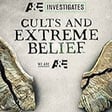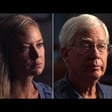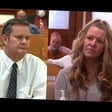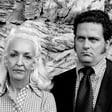Become a Creator today!Start creating today - Share your story with the world!
Start for free
00:00:00
00:00:01

Episode #1 - Diane Schuler
This week on the Mothers of all Crime, we will be diving into the suspicious accident of Diane Schuler. She was the "perfect mother" who killed 8 people in a bizarre crash on the Taconic Parkway. Join us for a thoughtful discussion of what happened that fateful day July 26, 2009.
Recommended
Transcript
Introduction to 'Mothers of All Crime'
00:00:01
Speaker
Welcome to the Mothers of All Crime. This is a podcast where we will deep dive into the mothers involved in infamous crimes and scandals. We are your hosts, Monica and Crystal. Join us on our journey of the mothers of all crime.
Case Introduction: Diane Schuler
00:00:18
Speaker
We're going to talk all about Diane Schuler and what happened on July 26, 2009.
00:00:25
Speaker
I think that one of the best sources in this case is a great HBO documentary called There's Something Wrong with Aunt Diane, but there's also information online, reputable, not reputable sources. And I've done some research, but I'm very, very interested in hearing your thoughts. So I thought maybe we could start with just going over what happened that weekend, that day. Absolutely.
00:00:51
Speaker
So I think we should probably give a little bit of a timeline. Sure. So like you said, it was July 26, 2009. Yes. They were in upstate New York, sleepy Hollow specifically, they were going camping for the weekend. Diane, her husband, Danny, her daughter was son. Right.
00:01:10
Speaker
are three nieces. We're all with them for that weekend. Right. So it's Diane, husband Danny, their kids, Brian and Erin, and then the nieces are Allison, Emma, and Katie.
Camping Trip and Departure
00:01:23
Speaker
So they all go camping for the weekend, and originally their grandfather, Warren Sr., was supposed to be going with them on this trip.
00:01:31
Speaker
but he couldn't make it. They couldn't find anyone else to go. And Diane ended up driving the five kids to the campground by herself while her husband went ahead with the dog in his pickup truck and set up the campground because they had a little camper that they would use at Hunter Lake campground and they would go fishing and do all kinds of outdoor activities. So they'd done this trip before and they were planning to do it again.
00:02:01
Speaker
but obviously that's, things went awry.
The Return Trip Begins
00:02:05
Speaker
Or we wouldn't be talking about it. I think it's important to like, this was a regular campsite for them. So like the owner of the campground knew them by name, would go over and say hi to them when they were up for the weekend. And people saw them. So some of them I'm very familiar with. Yeah, people saw them. There's pictures of all of them on this camping trip together. And I mean, in 2009, social media was very different, but I think we know
00:02:28
Speaker
things can look really good in pictures and maybe it doesn't actually represent reality, but by all appearances, everything is totally fine.
00:02:38
Speaker
And when they leave the campground at about 9.30 in the morning on July 26, 2009, the owner of the campground sees them, says that everyone seems totally fine, that Diane is driving, the five kids are in their car seats, everyone's yelling about what a good time they had and that they can't wait to come back the next week or the next year. And that's really the last time that anybody sees them in person that knows them.
00:03:07
Speaker
Yup. So then from there, they started their journey back home, which is about four hours to a different part of New York. Oh no. It's about two hours, Crystal. That's very important. That's very important because the car is driving for four hours, but it should have only been less than a two hour drive.
Erratic Behavior and Crash
00:03:25
Speaker
I Google maps it today to double check myself because that's a big part of, I read the, I read a memoir related to the case and there's a big,
00:03:36
Speaker
part of it where they're talking about how long the car was actually gone and how this drive is not that far and she's done it many times. So we'll go through what happens. Their first stop.
00:03:48
Speaker
First stop of the morning. So stop one with breakfast. McDonald's. Yes. And Diane, so they get there around 9.59 a.m. So they left the campground 9.30 at 9.59 a.m. There's like a surveillance camera in the parking lot and it shows her car pulling into McDonald's. So they go there, the kids have breakfast, they play in those like gross little
00:04:14
Speaker
jungle gym things that they have inside in a McDonald's? Oh, but so much fun as a little kid. Oh, totally. Totally. Highlight of McDonald's. Totally.
00:04:24
Speaker
And there's an interaction between Diane and one of the employees of McDonald's because her son had wanted chicken nuggets, and that's not served at breakfast. So she had a whole conversation. She got a manager involved, talked to all these people. Everyone said that maybe she was a little annoying, but she seemed totally coherent and fine. So they leave McDonald's. They're there for a total of 34 minutes at McDonald's.
00:04:54
Speaker
And then their next stop is the Sanoko gas station.
00:04:59
Speaker
which we see on very haunting camera footage. And the documentary actually showed her going into the gas station. And they reported that she was going in hoping to buy like a pain medication or something of that sort, but whatever she was actually looking for, she didn't find. And she left a couple minutes later, returned to her car. So she didn't end up purchasing anything that day. Right. And then there's a gap of time.
00:05:29
Speaker
where she like no one really knows what happens in between like 10 46 a.m and 11 37 a.m like there's no she's still in the parking lot of the sunoco at that point she's not driving but at 11 37 a.m she calls her brother who is the father of the three girls in the car saying that she's running late
00:05:56
Speaker
And that is important because the oldest daughter, the oldest niece of Diane, daughter of Warren has a play practice or some other type of thing like that where there's a hard start time that evening. And she is calling to say that they're going to be a little bit late. And these are kids that are really young. So I believe the eldest niece was either eight or nine years old. She was seven.
00:06:24
Speaker
Oh, no, she was nine. Sorry. Emma was nine. Nine. Okay. Allison was seven and Kate was five. Yeah, so the eldest kid in the car was nine years old. And I think that's important to keep in mind. It is important. Very important. It's also important to reiterate that this is 2009. So not everyone has cell phones. Nobody has smartphones. And the only person in the van that has a cell phone is Diane. So I think that that's important. I'm not sure
00:06:54
Speaker
if this part was mentioned in the documentary, I know it was at another point, but at 11 45am, there's a witness that said that they saw Diane pulled over to the side of the road and they thought that she was throwing up. So yeah, and that I think
Investigation and Controversy
00:07:09
Speaker
was also paired with some allegations of how she was driving. Well, that's where things start getting a little interesting. Right. So at 11 45, the witness sees her. Yeah.
00:07:22
Speaker
Yeah, the witness sees her pulling over at a rest stop or the side of the road. After driving very aggressively or radically, she was flashing her lights at him. And the reason I think that's why they noticed that she had pulled over, she was leaning over appearing to be throwing up on the side of the road is why they noticed it because of how aggressive she was driving behind them. Yeah, that was at the Ramapo rest stop at 1230pm.
00:07:53
Speaker
And the witnesses thought that she was an aggressive driver, but very focused and was driving up their ass, blaring her horn at them. And they were really freaked out. But when they saw her, what they thought was throwing up, they were like, Oh, well, that makes sense. I guess that's why she was driving like that because she just needed to throw up.
00:08:17
Speaker
You start kind of justifying, you don't think anything of it. Those rest stops in that part of the state too are so busy. So the fact they even remember this interaction, to me at least, was this was aggressive behavior. And that's coming for a New York driver.
00:08:38
Speaker
it seems completely unreasonable to be driving that way. And the urgency doesn't really make sense unless you think someone is going to throw up. So like if her or one of the kids or something like that was going to throw up, I could see really hauling ass to try to get into the rest stop. Right. Yeah. Because you're like, I got to get there now. It's not in a couple of minutes. It's now. Right. So I think that kind of justified for those witnesses what was happening at the time. Definitely.
00:09:09
Speaker
And then some weird stuff starts happening with her phone. At 12.55 p.m., there's a wrong number that's called from her phone. So it's just, it's not, I couldn't find the number and I also don't have her family member's phone numbers, which is probably for the best. But I would be really interested to know if it's a bunch of the same number, if it's totally random, or if it was close to someone's phone number. But she dials a wrong phone number.
00:09:38
Speaker
and then her brother calls about seven minutes after that. And that's the first time that someone thought that she sounded weird on the phone. Was this the point that her niece started talking to her dad or was that the next phone call?
00:09:57
Speaker
I think that's the same phone call. I think it's the same phone call and it was like Diane had called or Warren had called and Diane was talking and then it was like she couldn't talk anymore. So the niece is talking to her dad.
00:10:12
Speaker
Right, which is where like the infamous saying that named the documentary started coming into play. There's something wrong with Aunt Diane. Yeah, which she's claiming she can't see. She's having trouble that she's just not okay. Right. And the kids are crying. And Warren is telling her to stay right where she is. She's having the kids read signs to him so that he can figure out where they are. And he's saying,
00:10:41
Speaker
please don't drive, I'm coming to get you, stay exactly where you are. But when you get- Which I think as people can probably guess didn't happen. Right. Definitely. Definitely. So three more wrong numbers were called from her phone, which again, I would really love to know who she was trying to call and what difference that could have made if she could have contacted whoever that was.
00:11:07
Speaker
And then to me, one of the more interesting things, more chilling things about this case
Theories and Family Dynamics
00:11:12
Speaker
is that she ditches her phone. On the Tappan Zee Bridge. Yeah. And it's not like she threw it out of the car window, which also had been interesting, but it looked like it was placed and it wasn't found for hours after the crash, but it wasn't in the car and it was eventually found. So she had had to have driven again, pulled over again and put the phone down outside of the car.
00:11:37
Speaker
Yeah. Well, there were more witnesses at this point saying that they were passing for context, she was in a red minivan. So it's something that more likely you're going to notice those red cars on the road. So there are more witnesses saying they saw her pulled over outside the car, appearing to be throwing up, but they couldn't really gauge it. That's just from her stature and how she was standing. Yeah. So at that point, she must have left the phone either intentionally or by accident.
00:12:06
Speaker
we're not really sure yeah and then about 20 minutes after well about 20 minutes after that 911 starts getting flooded with calls there was about a dozen 911 calls reporting a van going the wrong way on the taconic parkway and this was a car that was going fast going very very fast driving pinned straight down the highway
00:12:35
Speaker
about 1.7 miles in the wrong way. Going about 70 miles an hour. They estimated. Right. And cars are swerving out of the way. There's a lot of near misses until finally Diane's van comes head to head with another car. And there are three men in that car, all of which pass away at the scene. And then in the van, which is, which eventually explodes, it's on fire.
00:13:06
Speaker
Um, everyone's eventually pulled out or was ejected and Allison, Aaron, Diane, Emma, they're all pronounced dead on the scene. Katie Hance and Brian Shuler were brought to the hospital and Katie died later that day. So the only survivor of the whole crash was Brian Shuler, who was about five years old.
00:13:33
Speaker
He had a lot of injuries. He was in the hospital for a couple months, has lasting lifelong injuries. And then the car that she hit veered off and then also hit another oncoming car. Thankfully, the two people in that car only sustained minor injuries, but they also were indirectly affected.
00:13:54
Speaker
So they didn't get the full blunt of it. Two of the people who witnessed this crash, two men actually stopped and were the ones who pulled out Diane and the children from the car because they started seeing it catching on fire. So two good Samaritans got out of the car, tried to help, and actually didn't even see her son at first because he was underneath all of the other children that were still in the car. Which makes me think
00:14:24
Speaker
that the kids probably were not buckled. Yeah. So I read a report saying that they kind of determined that not one of the children were either properly put in a car seat because you got to remember these kids were little and none of them had been fully put on with seat belts. So they were probably jumping around the car, running around or just playing or whatever they were doing. But not one of them was determined to have been correctly fastened in the car.
00:14:54
Speaker
Which I think if we go back to when they left the campground, I think that would have been noticed if it had been like that by the owner of the campground when she was saying goodbye to them. She didn't think anything was unusual about how the kids were sat in the car. So, I mean, obviously they went to McDonald's, they made some stops, who knows, and we'll never know what happened in the car during that time, but
00:15:17
Speaker
Obviously, they had to take the seatbelts off or she took them off or the kids were panicking and trying to get out of the
Psychological Exploration
00:15:24
Speaker
car any way they could. I'm not sure. I mean, she may have child block them inside other times that she'd pulled over.
00:15:32
Speaker
but they were definitely not. And if you think about it though, if the eldest daughter, niece, excuse me, started talking for Diane, it's not like those seats are close together in bitty bands. So my assumption is she probably had to get up to take the phone to be able to talk to her dad. So you have at least one that you know is moving around, let alone the other four. Man, those kids must have been absolutely panicked.
00:16:00
Speaker
it's so sad but so coming forward the family of danyan kind of presented her and a lot of her friends and family as like a superhero pto mom yeah where she worked full-time but was always in the school activities was always put together her kids were dressed well um seemed to kind of be able to do it all
00:16:23
Speaker
And that wasn't necessarily what came to light with some of the reports as the investigation with the police department started happening. Yeah, so like I told you that I read the book that Jackie Hance, who's the mother of the three girls in the car, I read her memoir, and it was very, very sad, but really interesting.
00:16:45
Speaker
And I didn't realize until I read that that in the documentary where they show the funeral, and then the autopsy report is how things actually happened. So they had a funeral, they had, what, five, five caskets, and they were all buried in the same plot together. So it's Diane, her daughter, Erin, and then the three nieces are all in the same burial plot. Their father,
00:17:12
Speaker
Diane's brother gave a really touching, beautiful eulogy, saying that Diane was a perfect mother, a wonderful sister, she would have never done this on purpose, and that it seems to be what everyone thinks, in the families at least, until the toxicology reports came out. It
Family Annihilator Discussion
00:17:32
Speaker
came back saying that her blood alcohol content was 0.19, and that there was six grams of undigested alcohol in her stomach.
00:17:43
Speaker
Yeah, which is approximately about 10 drinks. And if that had been absorbed, it would have brought her alcohol level up to 0.25, which is crazy. Which is like blackout drunk. People are getting hospitalized at that kind of level of intoxication.
00:17:58
Speaker
Yes. And there are different theories that I've seen online about how there are different, I guess, diseases where you drink things that contain wheat or a body is exposed to very high temperatures and that metabolizes into alcohol. But I don't think there's any weight behind those theories. It doesn't seem like there's any explanation other than Diane was drinking for the alcohol, even though the documentary is basically her husband trying to find some other explanation.
00:18:29
Speaker
Which, yeah, and I think it's interesting with those other theories too is first of all, the one way you kind of mentioned that like your body just creates the alcohol from like different food contents in your stomach. It's such a rare disease that the chance of this ever happening to her in the past, and then this is the one time occasion it happened, is so slim.
00:18:55
Speaker
And frankly, the only reason personally I even know that it exists is from like Chicago Med, because they used to have an episode and they walked into it because it's not something that typically happens and it is so far fetched.
Speculation and Broader Impact
00:19:09
Speaker
But when it comes to the alcohol in her system, one thing that did come up through the investigation was an empty bottle of vodka sitting in the foot bay of the driver's side of the car. Yeah.
00:19:24
Speaker
which her husband has various explanations for throughout the documentary and throughout his interviews that he did in the media. Which changed. The more he gets confronted on it, the more the story changes about Diane's alcohol use. So it started with, oh, she doesn't really drink. Then when the bottle was found, it was, well, she didn't drink that day, but we have drank at the campsite. We just have a bottle of vodka and we use it throughout the season.
00:19:52
Speaker
but it was put in the bags and put in the truck with me. I don't know how it got there but regardless the bottle was at the foot of her driver's side and for anybody who had drives a car the chance of that
00:20:09
Speaker
happen to go over there from a different part of your car or the trunk of your car is pretty much zero. Yeah, it seems pretty far fetched that it climbed out of one of the suitcases and found its way to the front of the car. Right. Even with how horrific that crash was, it's pretty impossible and implausible for it to not have been within reach of her and have it end up in that location. Yeah.
00:20:39
Speaker
But I think it's also a good note of like that wasn't the only thing that was found in her system when they were doing the autopsy and the toxicology reports. That's true. They also found a pretty high level of THC, estimating to have smoked somewhere between 15 minutes or an hour, I think they said before she started driving. They did say that. And one of the things I really wanted to talk to you about was
00:21:05
Speaker
I don't know how much you know about THC testing in blood and hair and urine on autopsies, but I didn't know a
Reflection and True Crime Themes
00:21:15
Speaker
lot. And so I started doing some research and there's conflicting information, but I could not find anything that said that there's a way to conclusively show how recent marijuana was used on autopsy. It just shows a concentration of THC in her system.
00:21:34
Speaker
so I mean she very well could have been high that day but I don't know like if she was a chronic marijuana smoker which we'll get into but if she was a chronic marijuana smoker I may know you know from personal experience that that stays in your system for a very long time even if you stop it can stay in your system for a really long time and everyone metabolizes things differently so
00:22:01
Speaker
And there was no paraphernalia found in the car, which I also think is interesting. So it's hard to know.
00:22:09
Speaker
they didn't really mention like they touched on her use of marijuana a couple different times and again much like her alcohol it changed depending on who you asked. So her husband said she very rarely used it but once in a while to like relax and then her sister-in-law says oh she used it pretty regularly to sleep and de-stress and
00:22:35
Speaker
she was very aware of that usage. So it's interesting how you have such a drastic difference. But when it comes to it being in your system, you're totally right, it can stay in your system for a long time. But my assumption would be from the quantity that was in her body and her probably blood testing and things like that, you're going to calculate the amount versus her weight versus some other things to get an estimated time. And I'm sure the science isn't perfect. Yeah.
00:23:05
Speaker
it would be probably, I think that's why it's such a large timeframe. Cause like with alcohol, you notice that it's a very precise of this is the number about this many drinks and this is what we, it was in her system versus the THC was here's a, about a 45 minute hour range that could have come in because I think the levels were so drastically higher, her system. So if she had smoked a couple of days ago, they wouldn't be as high.
00:23:35
Speaker
versus if she smoked an hour ago. Yeah I think we definitely need to have better methods of evaluating that because I know it's still a problem for especially states where marijuana is legal to have breathalyzers and things like that. I know that there are some that are in prototype but there aren't any that are like commercially available. The police don't use them. There is not like a
00:24:01
Speaker
a really reliable way to test if someone is currently intoxicated for marijuana. It's all just you have used it, but it's very hard to nail down. A lot of it is observational. So it's tough when you can't speak to the person, but a lot of the time officers are going to use observation and questions and certain behaviors. But what's interesting is in the United States in general, the levels of like
00:24:30
Speaker
intoxication and driving specifically using marijuana have drastically increased and a lot of people are now getting charged with DUIs, DWIs due to smoking or using and then getting behind a vehicle. So it's interesting how that was brought up a couple of times where she now has a combination of THC and alcohol in her system which
00:24:58
Speaker
can play a good factor or a bad factor depending on you as a person. Yeah, I did see some theories that maybe she took a bunch of edibles and then was freaking out and wasn't realizing what she was doing. But I mean, in my experience, and other people's experiences that I'm aware of, of taking edibles, it doesn't really, when you're freaking out from taking too much edibles, you're not also downing a bottle of vodka. Especially someone who's a chronic user.
00:25:28
Speaker
Yeah. And then you have like the witnesses being like, she was driving like dead on like very, she was driving aggressive. She was driving erratic, but it was very precise. It was done with precision. It was done very intentionally and very straight. None of them were saying she was driving uncontrollably. I think she's drunk. It was just, she's, this is what she's doing. And it all seemed very intentional. So I have a hard time
00:25:56
Speaker
looking at it and being like, oh, it's because she was on drugs or something like that. Because from my experience, you're not having such precision with stuff like that. If anything, you're slowing down and you're a lot more like aware of things. Yeah. But I don't know. I guess it also depends on each person and how that affects them and things like that. If she was having some sort of psychotic episode, maybe that would explain everything.
00:26:24
Speaker
And that will explain why she was drinking, why she was smoking, why she was acting erratically, but still in control. It could explain it, it could explain it, but she doesn't have a known history of psychiatric disorders. Although, who knows, because you only get those diagnoses if you seek them out. Right.
00:26:49
Speaker
And from the documentary at least, they were very adamant about Diane didn't seem to like doctors. It was kind of far and few between. She had like a tooth first example that definitely needed to be extracted. It was kind of well known she was having tooth pain and she up and left when the extraction day, she went to the office, sat down and then was like, Nope, nevermind. And got up and left and never had the procedure done.
00:27:16
Speaker
So you've got to assume that kind of translates to other areas of her life, where she has so many other things to do, but not taking care of herself. It's relatable. And I think like every woman, like we are not like every woman, but I think that we are conditioned to put everyone first.
00:27:39
Speaker
except for ourselves. And it's the whole documentary of these people who don't seem to really know this woman very well at all, even though it's her closest friends and her closest family, all have very conflicting stories about who she was and how she acted. And I didn't really get the sense that any of them knew her very well.
00:28:01
Speaker
But everything positive they said about her was just how she sacrifices and she martyrs herself and she takes care of everyone else. And her husband, such a man child. And it's hard. Oh, I'm so glad you brought him up. He annoys me so much. And I just need to talk about it. Yeah. So let's just start with when they met because she had some
00:28:30
Speaker
really really close friends like group of girls they were always together they hung out all the time everyone kind of there were so many pictures of them as a group and then she met her husband at one of their weddings and then all of a sudden now she's not friends with any of them like none of them only one of them was invited to the wedding she stopped associating with a lot of her close friends and
00:28:57
Speaker
all of her time became her husband. It was her first relationship, her only relationship, and everyone else seemed to go on the wayside. And the stories they were saying, they knew her super well. But then after she met her husband, it seems like everyone kind of just got this peripheral association of her. Nobody truly knew who she was. It's interesting. Maybe she was hiding stuff, hiding things with him.
00:29:25
Speaker
hiding things from him, hiding things for him? Yeah. Well, how many times have people been in unhealthy relationships that appear on the outside to be perfect? And they start to distance themselves because they don't want people to see what truly is happening in their relationship or truly happening at their home, which
00:29:48
Speaker
I think is interesting where there's a lot of circumstances when he's being interviewed and doesn't really give super clear answers when he's asked something about Diane or about their relationship. It's all very vague. Yeah, I also know what to challenge it. He really didn't spend a lot of time with her. I feel like right she was his nanny and his maid and
00:30:18
Speaker
also brought in a paycheck but they didn't have a lot of time actually together because he worked nights and she worked days and it seems like she was running the kids to all of their events which I guess makes sense because he's sleeping during the day like they had completely opposite schedules which I could see causing a lot of strain and being really difficult to manage but him saying that she
00:30:41
Speaker
doesn't drink or really anything about her. It's like, do you really know? How do you know? Yeah, exactly. You're not there. And that's what I have a hard time. In the field that I'm in, I know a lot of people that work nights and I know a lot of them have kids. And if you want to be involved in your wife and your children's lives, as a family, you figure out that dynamic and you make it work.
00:31:07
Speaker
And it seemed very much both from like his own sister-in-law being like, he didn't really choose to, even after Diane's passing, he had someone watching his son and helping out doing the housework. And he just kind of like went about his life as if nothing happened and other people stepped in to Diane's place. So clearly he didn't have, from my opinion,
00:31:36
Speaker
an intention or desire to do all of those things and be involved in her life and her their children's lives. But the role of a wife and the role of a mother are so
00:31:50
Speaker
They're so linked to this case and it comes up generationally because Diane's mother left when she was nine. And she was the youngest of four children, but the only girl. So she was the one that was doing the housework, that was taking care of their dad, that was doing all of the mother things, all of the woman things around the house. And then it seems like she created that
00:32:16
Speaker
cycle again in her life where she found a man to take care of and then she was I guess doing a better job than her mother is what we're supposed to understand from the documentary.
00:32:31
Speaker
Do we ever figure out, or at least I didn't find anything that said exactly why the mother left? I heard at one point through something, and I can't remember what it was, that she left with a neighbor, like she found a new relationship and left, and then afterwards re-contacted. All the sons have relationships with their mother, but Diane never allowed that relationship to be reconnected.
00:32:57
Speaker
Is that the same thing you found? Or did you find something different? No, I that's the story that I'm so I've never I've never seen something that's been 100% validated by the family. But I have seen several things and it's been alluded to that she was having an affair and that she left. And I know that in the book that I read, they explained it to their kids as that she just didn't want to be a mom anymore. And that's why she left.
00:33:25
Speaker
Okay, yeah, but I mean, you simplify, which I think is interesting to write. But if you look at it, how then Diane would respond to that, if you internalize that behavior of I don't know, they didn't want to be a mom, then maybe you have like go above and beyond to do that for your family, maybe. I'm sure, I'm sure. Yeah, I think that she had
00:33:49
Speaker
something traumatic happened in her formative years. And this is just something that we know about. We don't know about all the other possible traumas that she went through because she's not here to explain any of it. And it doesn't seem like she was very open with her husband or her family or her friends about her pain or what she was going through. So if other incidents happened, if there was other resentments within the family, I'm not sure.
00:34:18
Speaker
Because when she included the nieces in this, it really makes it a very unique case. Because people unfortunately kill their kids. It happens. It's absolutely horrific and it's hard to imagine, but it does happen. But killing someone else's kids really differentiates this from
00:34:44
Speaker
what I guess would be more normal for familicide but she was there some sort of resentment with her brother? I don't know because it's interesting where Diane's husband and his side of the family are have continuously after the incident reiterated she wasn't a drunk no one was killed by a drunk driver it had to have been something else and
00:35:12
Speaker
the rest of the people's families involved, her side of the family, the families of the other fatalities, just wanted closure. They wanted to move on and it seems that he just wasn't allowing that to happen. And Daniel was consistently making it so that people couldn't get the closure that they needed and the acceptance that their loved ones weren't there. And
00:35:39
Speaker
It's hard to understand that motivation because he then started going down the route of hiring a private investigator to redo all the testings that
00:35:51
Speaker
state examiners had done because he didn't believe it or claims that he doesn't believe that this was what happened. Right. And the PI is interesting. He's interesting for sure. I get back and forth opinions about him because from different sources it gives different stuff. So from one angle you have the husband
00:36:17
Speaker
of a woman being accused of killing a number of people because she was drunk who wants to clear his wife's name. So he hires an investigator to go find out this stuff. And then from their point of view, the investigator disappears, took all their money, I think it was like $30,000, and was never heard from.
00:36:43
Speaker
But then you hear from the investigator side where he took the money, he ran all of the tests, he contacted Danielle saying he has the results, and then nothing happened after that.
00:36:59
Speaker
through the documentary, it came out that he did run the tests. The tests did verify that everything that was previously tested was correct. There was no issue. It wasn't somebody else's DNA in a clerical error. But he also was not exactly the most forthcoming of investigators either. So I think it definitely like he wanted more and was trying to get more money out of them to continue that investigation is one point of view to look at.
00:37:27
Speaker
But then you have my uncomfortableness of her husband, where I think he may have got those results, didn't like what he had to say, and then sort of telling people that he ran off with their money.
00:37:42
Speaker
I agree that that is probably what happened that he wanted different results and when he didn't get different results he was really mad because he had her body exhumed he had her DNA tested and it was all the same everything matched everything was exactly the same it was her DNA it was her body there was alcohol
00:38:07
Speaker
There's no evidence of a stroke. Even this tooth abscess that they go on and on and on about in the documentary, there is nothing on the autopsy about that. Yeah, and here's the thing. I think all of us have experienced a little bit of tooth pain.
00:38:24
Speaker
excruciating tooth pain to the point of causing you to drive 70 miles an hour down the opposite side of the highway, just that doesn't line up either. Like if anything, you're pulled over and you're like, I can't handle driving right now. Like you're not getting this laser focus on something. Exactly. I definitely agree. But the only test that's interesting that they didn't run was the hair test. So during the reevaluation of everything,
00:38:53
Speaker
her liver did find that she wasn't a chronic drinker. I thought that was interesting. Yeah and for someone who had that much alcohol in their system there's no question that in my opinion like she definitely had drinks over time but she clearly was not a chronic drinker because it would have shown up in her liver or so this was not a normal everyday occurrence for
00:39:16
Speaker
or she was very new to being an alcoholic. Because there's a lot of theories about was she a high-functioning alcoholic? Was she a closet drinker? Was this something that she was doing every night while her husband's at work? And it could take years to really have significant damage to your organs. But I don't think for the last 10 years she's been a high-functioning alcoholic, but maybe the last six months prior to her death she was.
00:39:43
Speaker
I mean, we'll never really know, but it's interesting. Kind of what I was leaning towards too, because there's no way. Well, I mean, there's always a way. But you would have to assume that someone who, let's take the idea that she isn't a normal drinker, for someone to sit down and have at least 10 drinks while driving in the morning. It's a very conscious decision. In the morning. With five kids in the morning. Very conscious decision.
00:40:12
Speaker
Yeah, that unless you are starting to build some kind of addiction, that's not something the average person would do.
00:40:21
Speaker
without some kind of motivation. So there's that. But then there's the other point that you brought up earlier is mental health. Maybe something had happened that she was dealing with more recently. And this was her way of dealing with it was starting to have a dependency or being a closet drinker to deal with whatever issue had happened.
00:40:43
Speaker
Yeah, I definitely want to discuss my theory and also what I think the motivations could have possibly been. But I wanted to mention something and I don't want to forget to do it. So I'm just gonna bring it up now. But you're talking about her husband and how it doesn't seem like he has like a clear motivation for what he's doing. And it seems very weird the way he's acting. And I just wanted to point out that I think that that for him, at least in the aftermath of the crash, I don't know
00:41:12
Speaker
prior to the crash, how he was. But I think afterwards his motives were primarily financial. I think that he did not want to be sued. I think he did not want charges pressed against him. I think that he, so he made money from the documentary.
00:41:31
Speaker
which is brought up in Jackie's book, because they were also asked to participate. And they were absolutely also horrified by the name of the documentary, which is upsetting, because I really liked it. But it's, you know, different in your little girl who had said it. Absolutely. But it is it is a gripping title. It is but he got $100,000. She don't want to click on it. Yeah, he got $100,000 for his participation in the documentary.
00:41:58
Speaker
And I think, and then after the documentary aired, he ended up suing his brother-in-law, Warren. Oh, there were so many lawsuits that came out. A lot of lawsuits, but some of them were done by Danny and his lawyer, Dominic Barbara, which I don't know if you know who that is, but he is a high profile lawyer that does like media trials.
00:42:22
Speaker
He was like a really big deal during like the Amy Fisher, Mary Jo Botafuco case. He's like a big fucking deal in New York. And that's how they were, but that's how they were able to get on Larry King and Oprah and all of these network shows. I mean, it caught a lot of national attention, international even, but he was getting paid for these appearances.
00:42:49
Speaker
Right. So I think also Diane made the bulk of their money. Right. She was the breadwinner. And it's interesting where you brought up the lawsuits. There were like a dozen or something like that crazy number that were coming out, particularly after it was deemed homicide. The police department pretty much was like, no one's going to be charged because the person who would be charged would be Diane.
00:43:18
Speaker
But her husband starts putting out a case against the brother because it was his van that was being used, which I thought was absurd. And there was another one about like reckless driving against Daniel. Like it just started becoming, I think you mentioned, a lot about the money. I think it was a lot about money.
00:43:41
Speaker
pointing fingers and, well, if you're gonna sue me, I'm gonna sue you kind of mentality. Yeah, I think he also was extremely worried that he was gonna be found criminally responsible for this, that he either knew or participated in drunk driving with children in the car, because like, how do you not know that your wife is acting like this? What were you guys doing that weekend? And I feel like it's brought up in the documentary and in every source online,
00:44:09
Speaker
is what did you do to make her act like this? Which, I don't know if that's fair. I feel like I am not using my feminist brain.
00:44:20
Speaker
when I think like that because my instinct honestly is to blame him and think that he drove her to this point that something happened that he did something that she found out about something was he having an affair was he a child molester I mean it's a crazy thing to say and there's no proof of it at all but my brain immediately goes to
00:44:41
Speaker
what did he do to push this woman to this point right because no mother would ever act like this which is not true but that's immediately what i think right but then you have the flip side of it of like
00:44:57
Speaker
her being triggered by something. So say she had something super traumatic that happened to her when she was little, buried it, never thought about it, never talked about it. And then something that day, either something that was said, someone she ran into, who knows, but that something triggered her to go into like a disassociative state.
00:45:17
Speaker
where, because you have witnesses sitting there being like, she was very focused. She was very calm from what they could see. I mean, again, I don't know how much you can see of someone driving by you in the opposite direction at 70 miles an hour. True. But the few people that did talk about her facial expressions was like, she was very calm. She's very stoic. She was just going. And you got to wonder where that comes from. That's not something that just naturally happens.
00:45:47
Speaker
And I think that's where people started bringing up the whole delirium aspect of your mental state. And if you have any kind of drugs alcohol in your system, plus like she wasn't feeling good. And I think that's why they keep bringing up the toothache and the pain of if you combine everything together, she's going to go into like hallucinations and disorientation and not be able to be held responsible. And I think that's what they were trying to show.
00:46:14
Speaker
I agree. It doesn't sit well with me where... Yeah, it doesn't make sense. Regardless of your state, yeah. Also, you killed eight people. You are responsible for this. Regardless of what happened, it happened. And that's what's really sad about the whole thing. And there's no one to ask.
00:46:35
Speaker
yes unless unless possibly her husband should maybe get charged i have no idea i really don't think that he should but other than him there is no one to blame for sure because it was i mean a murder suicide mm-hmm and it's it i think it was i'm blaming on his sister and log name jackie oh jay thank you jay the documentary yeah
00:47:00
Speaker
Yeah, it was interesting watching her. If you kind of watch her behavior from the beginning of the end of the documentary, the beginning, she was in the forefront. She stepped up to the plate. She helped take care of their son. She was getting records. She was really trying to prove that this something else had had to happen with Diane. But as the documentary goes, you see her starting to kind of get annoyed with Daniel.
00:47:29
Speaker
And you could, from reading her body language, it was very much where she started being like, why are you not more motivated? Why are you not upset? Like, it seemed she started making comments that he wasn't really processing what had happened, which makes me wonder if he had any inkling that this could have happened.
00:47:54
Speaker
She definitely seemed to resent him as the documentary went on, but I think she also realized that there was no other explanation because they really, really wanted there to be some sort of medical explanation for what happened.
00:48:10
Speaker
Right. And the only test that they didn't do was the hair test for consistent drug use. Because your hair is the best source of finding long term drug use and long term alcohol use, it all gets held in your hair. And she had longer hair, so they'd be able to see a very long time period. And it's the only test that they didn't do. I would be really interested in the results of a hair test. But I think for the acute incident, it doesn't really matter.
00:48:40
Speaker
Right. Because if anything, it would only put her more at fault, probably. And also possibly him more at fault. Because if she was a chronic drug abuser or alcoholic, then maybe he did have some sort of responsibility. And he should have known that and the children weren't safe and he should have been protecting them. But as far as that day goes, there's really no question about
00:49:08
Speaker
alcohol that she consumed that day so unless she had some sort of no way medical issue that forced her to drink alcohol which I'm not aware of one other than alcoholism I mean I don't think there's another explanation for it so yeah yeah and it's just interesting where
00:49:31
Speaker
The husband also, I think, is the only one who could even, like you mentioned, be held responsible. But then if you look at who survived, their son, and if he were to have any charges or if they started digging into that relationship, and if there was any domestic or assaults or molestation, anything like that involved in that household, that son has lost both parents.
00:50:02
Speaker
And I think that's also an aspect that the sister-in-law started to kind of be like, all right, maybe I don't read too much more into this because I could find something out that I don't want to know, which will rip apart the family even more.
00:50:17
Speaker
It's interesting you say that because once again I'm going to reference this book which is I'll See You Again by Jackie Hance. She and Jay, so Jackie is Warren's wife and then Jay is married to Danny's brother so they're both sister-in-laws of Diane but they're not related to each other. They knew each other though and after this happened they would sit on the phone and they would discuss the case for hours on end and they would pick it apart and they would try to figure out
00:50:45
Speaker
what they thought could have possibly happened. And there's in the book she Jackie mentions that she said to Jay, if you ever think that Diane was just drunk or did this on purpose, don't even tell me.
00:51:01
Speaker
And it's she was like, because I just I can't, I can't live my life hating her. And she's still married to Jack to Diane's brother. So like, this is still her family. And she still has to exist in this world. And her children are buried with the person who killed them. So if she has to really face that, it just makes everything worse. True. Yeah. And
00:51:29
Speaker
as a family trying to deal with the just the grieving process of all of that because you lose there was so many lives lost. And when it involves little kids like that is just makes it so much more sad because they they hadn't lived their life yet. They were babies. I know that they were nine. That's a baby like 100%. And then the three men that passed in the
00:51:54
Speaker
that she collided with, there was a man in his 80s, his 70s, and I think the other one was like almost 50. Again, they still had plenty of life to live and their family was like all three of them were healthy, they were happy, like they had things planned and not one person, like everyone's life was cut so short due to something that we'll never know the answers to.
00:52:24
Speaker
But Diane's actions at the end of the day. Right. And I do think that she is responsible for this. Oh, 100%. I just, as an individual, I don't know how I would be able to, like, defend that. Like, I would definitely, like, listen, make the statement. Listen, I am so sorry. I don't know what she was thinking. But how can you sit there and deny science?
00:52:54
Speaker
So I agree, definitely. But then I'm thinking of my own family and my own sister-in-law and what I think she was capable of doing this. And I think I would go to a lot of lengths to deny it.
00:53:15
Speaker
Right, but denying it is one thing, but then like, if I came to you and was like, here's all of the documented evidence, here's the autopsy, here's all of the tests done more than once. There's nothing else for us to do. How much more can you deny of saying that that's wrong? Yeah, I mean, I definitely wouldn't have gone on Larry King defending it.
00:53:38
Speaker
It's all a lie. Science is a lie. Yeah, I probably would have just- But I think that's where that mental comes in, is the mental of like, I don't know what she was doing. I don't know what was happening. Clearly, she wasn't telling me. Right. 100%. I mean, the toxicology report, 100% changed the public perception. And I think it took a little bit of time for it to really hit the family. But I could see denying that as far as you possibly could.
00:54:06
Speaker
Oh, absolutely. Like at the beginning, 100%. I would do the exact same thing. But then as things come out. Impossible. Yeah. Like, yeah, that's some kind of character for that. No way. But there's always so much you can do until now you're causing damage to other people. How do they move on? How do you take the next step?
00:54:29
Speaker
So this is like one of my favorite true crime documentaries and I've watched it several times and I've made my husband watch it several times and I think that my opinions and perceptions of this have changed with every viewing that I've had and I'd be really interested in what your
00:54:51
Speaker
best theory is of what you think happened that day. Like the motive, the theory, what do you think happened? You beat me to my question. I was totally gonna ask you. I'm convinced that there was some kind of violence in the home. And my point to back that up is her isolation. The only people that spoke about her in modern time
00:55:19
Speaker
was pretty much her family. All of the friends were from her past of like her high school in early years. So I think that there was something happening in the home. And honestly, I think she just snapped. I think it got to a point that she couldn't handle it. And she was so traumatized from whatever happened in her childhood with her mom leaving all of them.
00:55:48
Speaker
the mindset of, I will never do that to my children. So this is what is gonna happen. And in order to kind of give her the courage of it, that whole liquid courage kind of idea, started drinking, followed, and then just kind of, once it started, that's what happened.
00:56:12
Speaker
And then there was no turning back, you know, it would have been so, so interesting. Obviously, we've been totally different. But if the toxicology report came back clean, and there was also no medical explanation for it. I wonder what we would think about this. Because it's if it's just liquid courage, you know, like, it doesn't really change what happened. It was just to make it easier for me to do it.
00:56:42
Speaker
All right, so what is your most recent theory? Because I know from past conversations yours has changed a couple of times. Yeah. Because I will tell you what's today's theory. Well, when I first watched this, I really felt like
00:56:56
Speaker
she had a drinking problem that nobody knew about and she just like lost control that day. That's what I thought happened and that she was like blacked out and drove the wrong way and what a tragic accident and it's a DUI and that's what I thought. But the more I've watched it and the more I've looked into it, I think that this was premeditated and I think that she's a family annihilator.
00:57:25
Speaker
I think it's really, really understudied in women.
00:57:29
Speaker
What do you think her motivation was for it? So I think, so there's four types that are like, which is all men based, all the research on family annihilators is based on men. But there's four categories. Right, because if 95% of these are perpetrated by men. But I will say Diane Schuler is not on any list that I could find a family annihilators, even though she definitely meets the definition of it.
00:58:00
Speaker
She did family annihilate. Yeah, the reason is because it was deemed a homicide. And they can't establish any motivation or premeditation. Right. Well, in my theory, where this is premeditated. Yes, I'm sorry. Yes, my theory. Because it is a murder. And a murder implies intent. It doesn't necessarily imply premeditation, but there's intent. And I think that she did this on purpose. I think that it was a plan.
00:58:28
Speaker
And when I was looking into the types of family annihilators, there's four types. Self-righteous, disappointed, anomic, or paranoid. So most men that commit family annihilation fall into self-righteous or anomic.
00:58:49
Speaker
which basically means that you feel justified by what you're doing. That's the self-righteous ones. And anomic is basically, it's financially motivated. Either like your family's a burden to you or you're gonna be bankrupt or everyone's gonna find out that you have all this debt or whatever. It's some sort of financially motivated family annihilation. But I think for Diane,
00:59:16
Speaker
I think that it was either paranoid or self-righteous because I think she had a perceived threat that she was going to lose her kids. And I don't know why she started drinking, but I know that when she was drinking and when her brother knew she was out of control, that's when she went from driving the right way down the highway drunk to driving the wrong way down the highway drunk.
00:59:45
Speaker
I think she knew her brother was coming to get her. He knew that there was something not right. And when he found her, everyone was gonna find out that she was drinking, that she was drunk behind the wheel with five kids, that she was gonna get arrested, that she was gonna lose her kids, that she would never see her nieces again. Maybe she'd go to prison, maybe CPS would be involved. And I think that at that point, she decided it was better to take everybody out than deal with any of the consequences.
01:00:16
Speaker
Yeah well all right building off that and kind of combining the two there were more recent rumors that her husband was having an affair. I saw that. So if you kind of combine both of our thoughts where it wasn't the best home life and she
01:00:37
Speaker
had this perfect picture of what her future was gonna be. And then that weekend, she finds out her husband confirms the affair since, I don't know, confirms that there's a fair, maybe leaving her, she has the concern of losing her kids, losing her family, that if I can't have it, nobody can. Maybe that's what pushed her to drink. And then once she was drinking, she was making even worse decisions.
01:01:07
Speaker
Well, yeah, who makes better decisions when they're drunk? I mean, that actually fits perfectly because when I was looking up the family annihilator stuff, it said that the motivations for it are usually psychosis, abandonment, or narcissistic rage. Right. And she was abandoned, how she perceived as being abandoned as a child. Yeah, she was. Pull that in. Yeah. Yeah. That's a really interesting thought for it. Yeah.
01:01:36
Speaker
I think that she wanted to be perceived a certain way and she knew that and she knew after this day she would not be perceived that way anymore and it was better for all of them not to be here than for her to have to deal with any of that.
01:01:58
Speaker
And I think that when we look at family annihilators, like when I'm thinking of like Chris Watts, for example, which was a really popular case, the way that he's described is kind of similar to how she's described. That super hardworking, really nice, perfect life, perfect family, has all the trappings of a normal life and
01:02:23
Speaker
I don't really feel like you can describe this as snapping because it took place over hours. So it's like, maybe something drove them to a point. But there's still all of this time where she's actively making these decisions. Same with him. Yeah. And it's Yeah, I will say it's like, there's when it comes to criminal behavior, there's that preconceived, like, they made one snap decision. And that was what happened.
01:02:53
Speaker
But if you look at domestic violence cases when the female is the victim in that relationship and they finally quote unquote snap and kill their spouse,
01:03:03
Speaker
They're not typically like quick one shot to the head and they're done. They're done extensively. And it's just something that is that one thing that pushed them over the edge or that one day that like they just can't handle it anymore. And I think if you combine all of the different things that we just talked about into one group, I definitely think we have support for that theory. Yeah. I also think maybe she was really hungover
01:03:32
Speaker
and then got up and just had to keep it riding, little hair of the dog. Yeah. And then that's fueling all of these decisions too. Mm hmm. I thought about that when they said when he first came out, he's like, I don't know, we might have had a couple by the fire. I'm like, Oh, so she was still drunk is what you're telling me. But then that problem is she must she had a couple hair of the dogs because everyone she talked to that morning. No, she was totally fine. Well, sober, clean, good.
01:04:02
Speaker
Yeah. And we knew she had to be recently drinking because there's undigested alcohol in her system. Right. And no food. A lot of it. No food. And she went to McDonald's. So she went to McDonald's and she did not eat. But she's been drinking. Which again, makes me feel like this was all premeditated. And maybe it was liquid courage, which I think is a good way to say it really. I think it all works together. I think she
01:04:31
Speaker
Mine now, as I'm stealing your theory and combining it with my theory. Oh yeah. Together we'll come up with one. Because I still want to blame Danny, even though if he's not to blame, then he is also a victim of this horrific circumstance. But he just really hit me wrong during the documentary. I think he's part of the motivation. Yeah, I think he's part of the motivation. I don't think he can be like, it's 100% his fault, because obviously he did
01:05:00
Speaker
drew the driving, but I definitely think he played a factor into the state that she was in. 100%. So they're drinking, possibly they're fighting. Maybe they're fighting in front of the kids. Maybe the kids are going to tell their parents what's been going on. Maybe they say something in the car, or maybe on one of these phone calls that she has with Warren or Jackie, they're annoyed that she's going to be late.
01:05:27
Speaker
And she's so resentful of all the stuff that she's been doing for everyone her whole life. She's just like, fuck it. Yeah.
01:05:39
Speaker
I just feel, the one person I feel so sad for is her son. Me too. The poor thing is eventually gonna grow up. He's gonna hear about this. And he's gonna have to process that later. Because it seems like the only thing that he remembered or that he would talk about was saying that mommy wasn't okay. And it's so sad that that's really his last memory of his mom. It's a really scary, traumatic incident.
01:06:09
Speaker
And hopefully he, they mentioned the documentary, he started getting into some therapy. Hopefully they keep him in that and he can process and be able to grow up and do whatever you want to do. But that's the one person, one innocent soul that I just feel so bad. He's an adult now. He's 19.
01:06:33
Speaker
Oh, that's true. Which is super crazy to think about. But yeah, he's like 19. I mean, I hope for his sake that he doesn't do any interviews and he doesn't write any books. But for my sake, I mean, I would be very interested in his interviews and his book. So if he's interested in writing a book, I would definitely, he'd have at least one sale. You have two people who will buy it. I would definitely buy it. I would be really, really interested. But I mean, I don't know if like a five year old with like a traumatic brain injury, like I don't know how reliable of an S he would have been anyway.
01:07:04
Speaker
But I also don't know what he'd witness prior to that. What happened afterwards. Yeah. Or what happened that weekend. What happened after. Although, I mean, I know the kids talked to their parents on the trip and they didn't say anything, but maybe it all happened that night. But then why would the kids all be like, oh my God, we had so much fun the next morning? Why didn't nobody see me?
01:07:30
Speaker
There's a lot of questions that I don't think we'll ever get answers to, which is so frustrating. It's very frustrating. It's very frustrating. But I mean, I feel like I didn't even really think of this as a true crime, like a murder, until maybe like the third or fourth time I watched it, which is bizarre to me now, because that's how I look at it 100% now. Right. Well, I think in the documentary, if that's where you start, they try to really portray Diane as a victim.
01:07:59
Speaker
and it being a more of a mystery than true crime. Because they focus on the family trying to defend her. And if that's the only thing you see and that's the first thing that you watch, you have no preconceived notions of anything else is there until you do some more digging. That's true. And it is presented from Danny's side of things. And it still doesn't really look good. It still looks really bad.
01:08:27
Speaker
But of anyone involved, it probably looks best coming from him to anyone else, which is sad. Yeah. Wow. But I think I want to end on a little bit of a high note, where
01:08:41
Speaker
if there is a high note. The one thing that I think that was positive at the end of it all is the brother, Diane's brother, he from was reading different interviews and stuff, basically, and you might be able to say where the book because his wife was the one that wrote the book, right? Yeah.
01:09:02
Speaker
Like he just went in a spiral wouldn't let his wife out of like very much like I need to keep everybody super close to me now because who knows what's going to happen. They were took a long time. They did end up having another baby and it came out and they finally did an interview about it and it was this little girl gave them life again.
01:09:26
Speaker
I think that's really something special that there's always a light in the darkness if you choose to find it. And I think that family has processed as much as they possibly can. But also, we're like, all right, we need to live our lives and our kids and
01:09:46
Speaker
I think that little girl was a blessing for them. I mean I think it was a really nice way to end. I definitely agree. Jackie's book was absolutely gutting but the book also ends with the new baby and talking about her a little bit and it is amazing because there's so many things but Jackie was a full-time mom. She was a stay-at-home mom and all of her kids died on the same day and for them to still be
01:10:14
Speaker
married all these years later and to have and they went through I mean some of the worst lows that a person can experience in this life and to have a family member be responsible for this someone who you trusted with your kids is absolutely gut like wrenching and devastating but they were so Jackie'd had her tubes tied after her three kids because she'd had three c-sections
01:10:44
Speaker
So they did IVF and a doctor gifted them the IVF, which was- Which is phenomenal. Yeah, amazing. Phenomenal. Yeah, amazing. And I do think that that, I mean, what a burden for that kid to have to grow up knowing what happened to their sisters, but it still definitely brought hope and meaning back to their home. It probably was so quiet without the kids.
01:11:12
Speaker
Yeah, so I think that's a really nice kind of yeah. And probably the same reason she ended her book with it is there's a little bit of light still in the world. And not everything has to be so dark. But we're gonna talk about a lot of dark things on this podcast. So definitely once in a while. So
01:11:27
Speaker
we need a little bit of sunshine. So if you're still listening to this, and you felt like this was morbid and dark and twisted, then you could skip future episodes. But if you felt like we pretty respectable, respectfully went through this case and just talked about our thoughts on it, that and you found it interesting, then please listen to future episodes, because they'll probably just get darker and darker.
01:11:53
Speaker
And if you have any suggestions, we're always open to them. But I think we have a pretty long list going so far with our favorites. We do. And we already started planning for our next one. Which I'm very excited to deep dive into another infamous mother. But I really enjoyed this case as sad as it is. I just find it very interesting. And I'm glad that we were able to talk about it.
01:12:17
Speaker
Me too. And it's the mystery of it that we'll never truly have answers, which is both fascinating and frustrating all at the same time. Agreed. Well, thank you for chatting with me. And I can't wait to talk to you next time. Okay. Have a great night. You too. Bye.



















